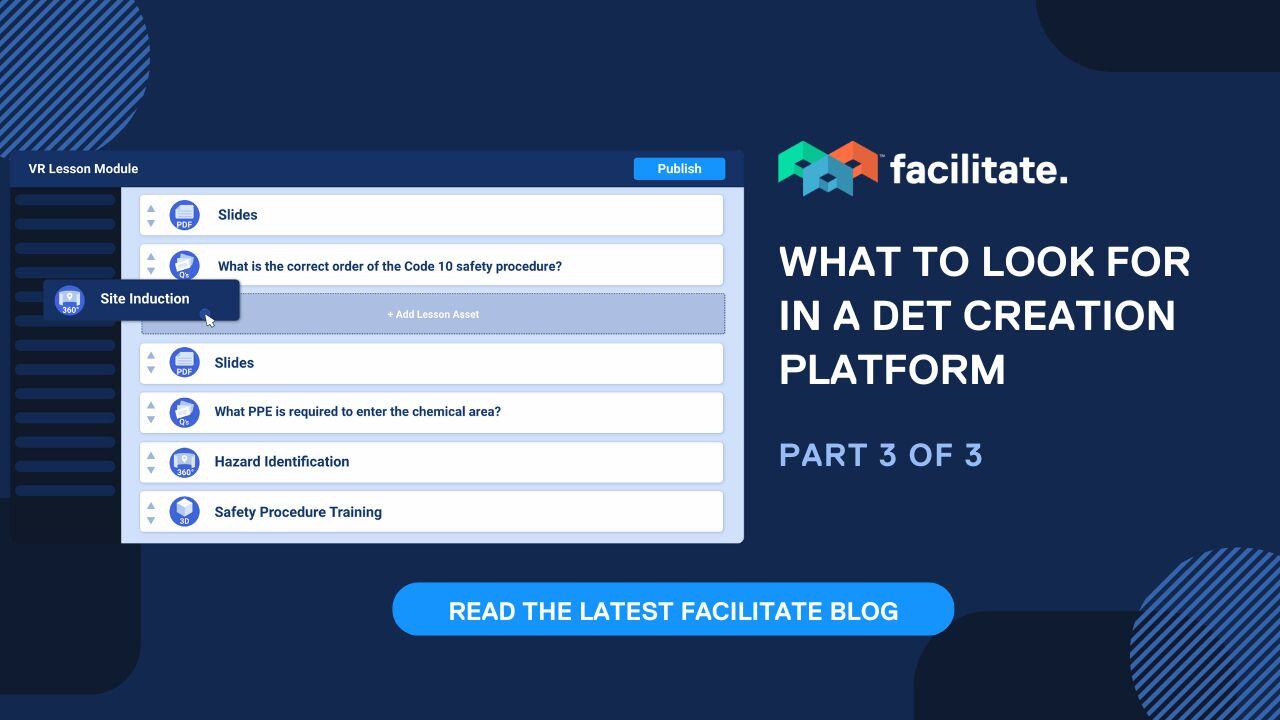What to Look for in a DET Creation Platform: Part 3 of 3

In Part 1 of this blog series, we explored the critical aspects of creating high-fidelity Digital Experiential Training (DET). We discussed the importance of using both image-based and computer-generated content to craft immersive learning experiences. We highlighted how Facilitate uniquely supports both modalities, allowing for realistic, experiential training content.
In Part 2, we examined the significance of collaborative learning within DET. We emphasized the need for DET platforms that support both asynchronous and synchronous learning experiences. We showcased Facilitate's capabilities in enabling collaborative spaces with lip-synced avatars and audio for enhanced engagement and training effectiveness.
Part 3: Empowering Subject Matter Experts in DET Creation
Digital Experiential Training (DET) is a new way of thinking about today's digital learning and one of the four foundational principles is the idea of empowering subject matter experts to create training content. By empowering lay people to create content, the creation process can move beyond the L&D function and allow for the capture expertise from across the organisation with ease. The L&D team (or an outsourced agency) don't have to interpret complex procedural training from an SME, nothing is 'lost in translation', and the agility with which a training need can be addressed is increased. Moreover, being able to easily capture and catalogue expertise from across an organisation has a lot of merit in the context of the expected 'brain drain' as a lot of older workers leave the workforce, taking their expertise with them.
So when an organisation is looking at its next generation of training, a key consideration must be the accessibility of the content creation process. Complex tools (even so called 'Low Code' solutions) or those which require 'service' in the form of hourly rate consulting, will make it difficult to achieve this aim. Many of us have seen complex, service based initiatives fail after a few months or become too expensive and inflexible to entertain long term. Simple, easy to use tools that can be rolled out beyond L&D professionals make a lot of sense in this regard.
Facilitate is exactly one such tool, designed from the ground up to be used by lay people. It has easy to use drag & drop functionality, intuitive interfaces and does not require additional service provision in order to create value. So if your organisation is looking for a digital training solution that's innovative, consider its complexity and reconcile this with who in the organisation should ideally be using this tool.
